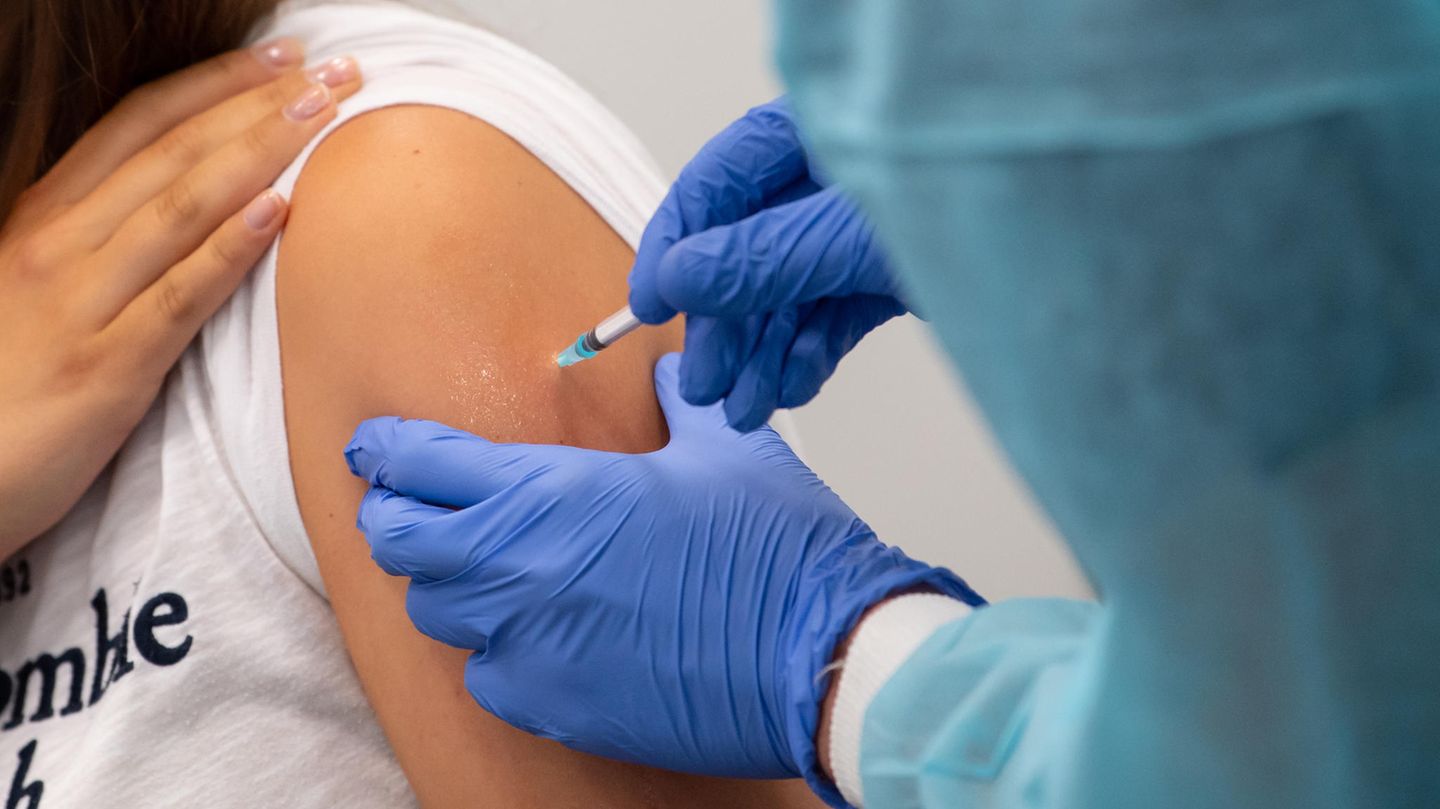France is doing it, and so is Greece: Imposing compulsory vaccination against the coronavirus on members of certain professional groups. There are also initial demands in Germany. But it’s not that simple.
The beginning was made by Wolfram Henn, human geneticist and member of the German Ethics Council: “We need a compulsory vaccination for the staff in daycare centers and schools,” said Henn in an interview with the “Rheinische Post”. The reason he came up with was: “Anyone who joins a group of vulnerable people from their free choice of profession bears a special job-related responsibility.”
Henn opened Pandora’s box in this country too. Compulsory vaccination – a word that politicians in Germany have avoided as far as possible. Probably also because the prescribed mandatory vaccination is not only legally problematic, but is often brought into play as a bogeyman by conspiracy supporters and vaccination skeptics.
Other countries in Europe have recently advanced. French President Emmanuel Macron announced on Monday evening that vaccinations are mandatory for health workers. Employees in hospitals and nursing homes now have until mid-September to get vaccinated. According to Health Minister Olivier Véran, unvaccinated health workers are no longer allowed to work and are no longer paid. A similar regulation applies in Greece for employees in old people’s homes and for the health sector. In Italy doctors and other medical personnel have been obliged to immunize since May 25th. The UK government announced on June 16 that all retirement home workers must be fully vaccinated.
Basic right to physical integrity
So why not in Germany too? In principle, the following applies in this country: The right to physical integrity is a fundamental right and guaranteed in Article 2 of the Basic Law. Forcing someone to have a needle stuck into their upper arm is constitutionally questionable. But it is not impossible either. After all, since March 1, 2020, there has been compulsory measles vaccination for schools and daycare centers. Both the children and the staff must be vaccinated against measles there.
The decisive factor in the legal assessment is: What is the point of mandatory vaccination? And aren’t there also less invasive ways to ensure the protection of certain population groups? This is precisely why Alena Buyx, the chairwoman of the German Ethics Council, considers compulsory corona vaccination for certain professional groups in Germany to be unnecessary. In the ZDF “Morgenmagazin”, Buyx pointed out that the Ethics Council had stated very carefully that under certain circumstances one could think about such job-related, very narrowly limited vaccination obligations. “However, I would say that these circumstances do not apply at all,” she emphasized.
First, there are other ways of protecting most vulnerable – i.e. particularly at risk – groups. “And: We have much better vaccination rates for the various professional groups than in France, for example. We have really great vaccination rates for health workers and teachers. That’s why I think we don’t need that at all.”
Infection Protection Act applies to hospital staff
The Infection Protection Act also applies to hospital staff; clinic operators can require their staff to provide proof of vaccinations. But what seems indispensable in a hospital room – after all, there patients are particularly at risk from infections – is far less the case in schools. After all, what use is it that the teaching staff is vaccinated but the students are largely unprotected because there are still no approved vaccines for their age group and they carry the disease into the family as an infection driver? Compulsory vaccination for teachers would only have a small effect – and would probably not stand up to the constitutional court.
The mandatory vaccination is legally the last resort. The state must have exhausted all other means beforehand: information, appeals, incentives. Klaus Reinhardt, President of the German Medical Association, therefore calls for politicians to step up the vaccination campaign before the debate about compulsory vaccination or the restriction of the freedom of unvaccinated people. “I miss the TV commercial for vaccination before the news,” said Reinhardt of the Düsseldorf “Rheinische Post”. It is about reaching those who are still undecided through consistent clarification. In addition, information must be provided directly on site, “precisely where the willingness to vaccinate has so far been low,” said Reinhardt. “We not only have to bring sports clubs, we have to get cultural associations and religious institutions on board for the vaccination campaign,” emphasized the medical president, adding: “Instead of prescribing, we have to be there.”
The subject of mandatory vaccination remains a taboo for politicians. Chancellor Angela Merkel (CDU) has spoken out clearly against it. “We do not intend to take the path that France has now proposed,” Merkel told journalists after a visit to the Robert Koch Institute in Berlin. Bavaria’s Prime Minister Markus Söder (CSU) said on Deutschlandfunk: “I am against compulsory vaccinations.” This also applies to teachers or students, for example. He justified his refusal by stating that compulsory vaccination was a “strong encroachment on fundamental rights”. The CSU boss also does not consider payments of money as an incentive to make sense. The greatest profit does not have to be a hundred euro note, but “the greatest profit is freedom”. Vaccinated people should have more freedom rights than unvaccinated people.
SPD health expert Karl Lauterbach confirmed to the “Rheinische Post”: “A vaccination against Covid-19 must be the voluntary decision of every individual. Here, politics must and will stand by their word.”




